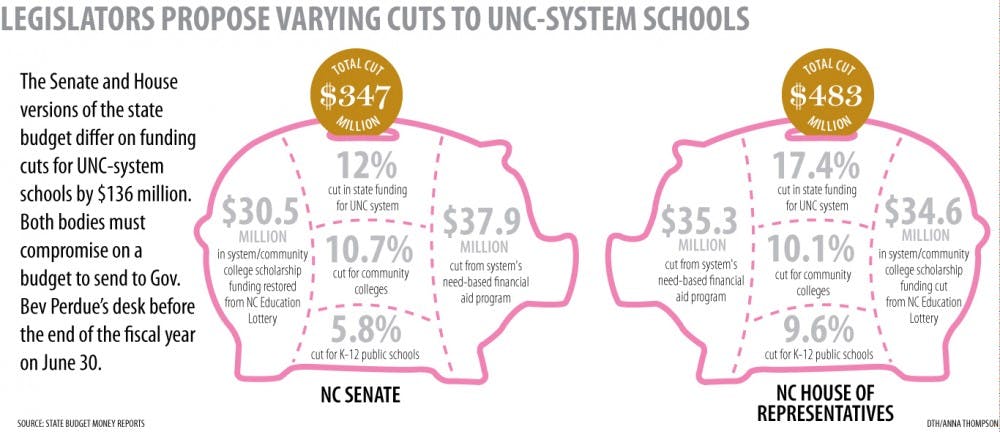Although not as deep as a 17.4 percent cut, the latest proposed reduction in state funding would still puncture the academic core of universities, UNC-system administrators say.
The N.C. Senate’s version of the budget would reduce state appropriations for the system by 12 percent or $347 million, compared to the N.C. House of Representatives proposed cut of $483 million.
The Senate’s proposal includes a cut of $37.9 million for the system’s need-based financial aid program.
Bruce Carney, executive vice chancellor and provost, said the cut in the Senate’s budget would actually represent a 13.5 percent cut for the academic side of universities because some state funds are specifically allocated for building construction.
Carney said any cut above 5 percent would impact instruction, requiring tuition increases to maintain the quality of the University’s faculty and course selections. The system’s Board of Governors has already proposed hikes averaging $208 for undergraduate residents and $650 for nonresidents.
Last year’s budget included a provision that allowed individual campuses to approve supplementary tuition increases up to $750 to offset cuts in state funding. Carney and Chancellor Holden Thorp chose to increase tuition by the full $750.
But another supplementary increase this year might not be enough, Carney said.
“I would support a tuition increase to help save the kinds of things that matter to students, faculty and staff,” he said. “But there’s no way we will be able to cover even half of the cut.”
The Senate’s budget does restore scholarship funding from the North Carolina Education Lottery for UNC-system and community college students that was eliminated in a last-minute House budget amendment.



